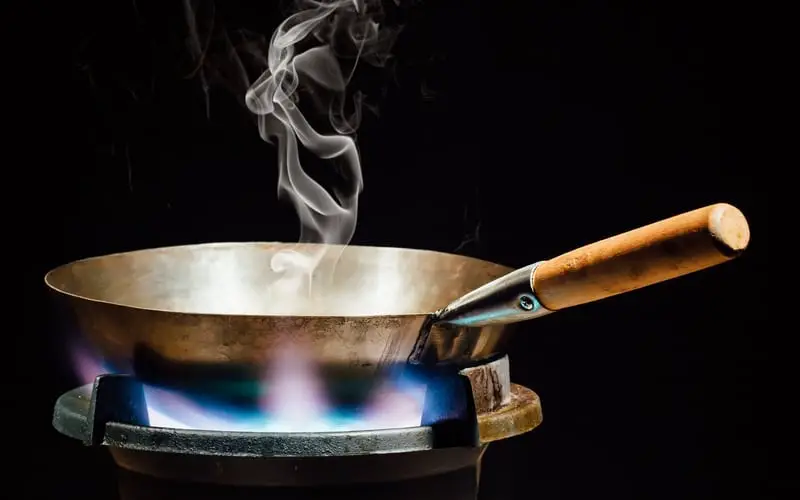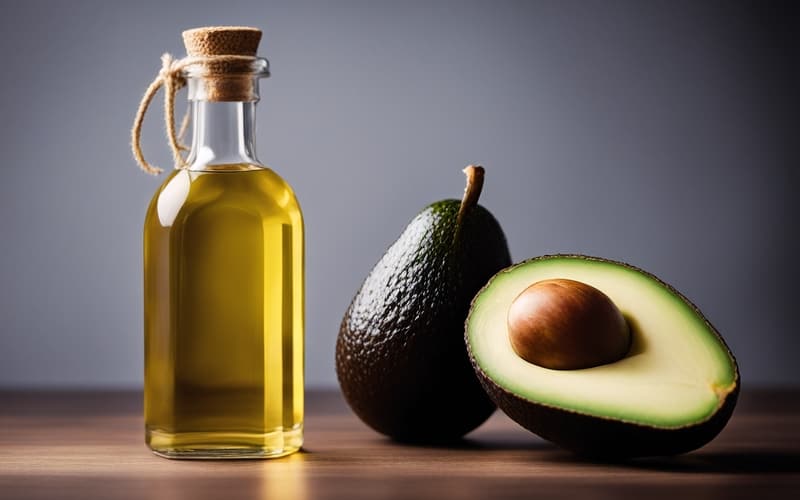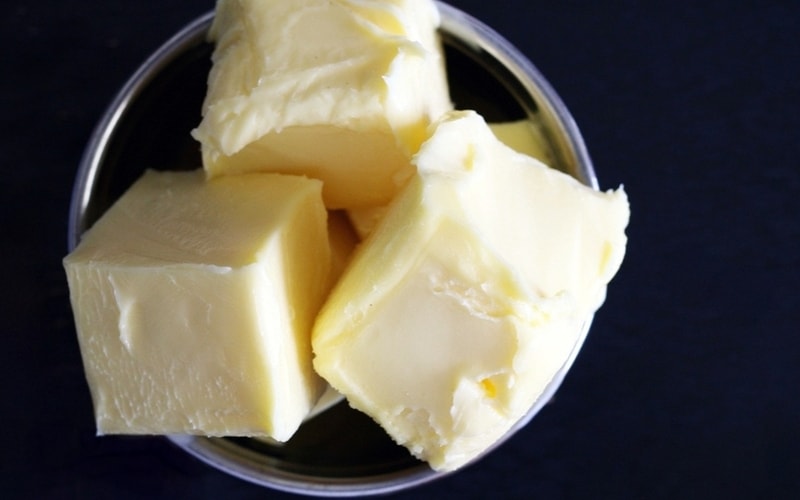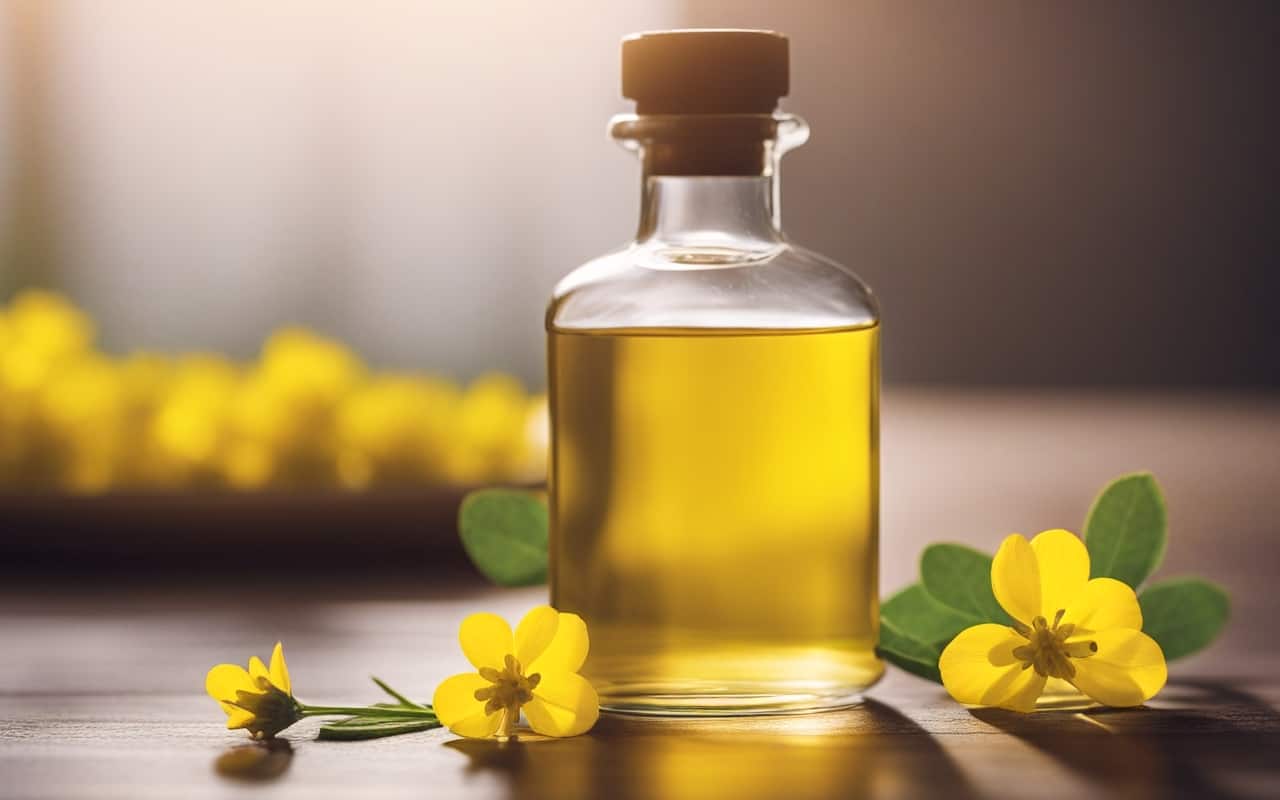Ever been in the middle of prepping a grand cookout and found yourself scratching your head over which oil to use for cooking on your new Blackstone griddle? We’ve all been there. One minute you’re fantasizing about that perfect sear on your steak, the next you’re deep in a dilemma between olive oil and canola oil.
Let me put an end to your cooking conundrum right now: the choice of oil is largely subjective. For me personally, avocado oil, canola oil, and olive oil are top-tier contenders for the Blackstone griddle. But why these three? And what about the other oils in your pantry?
Well, you will have to read to find out.
Table of Contents
- Why Is the Choice of Oil Important?
- My Best 3 Oils for Blackstone Cooking
- Other Cooking Oils
- Comparison Table of Various Cooking Oils
- What Can You Use Instead of Oil?
- Wrapping Up
- FAQ
Why Is the Choice of Oil Important?
We’ve already established that using oil for cooking on a griddle is important. Now, let’s get into the nitty-gritty of why the choice of oil matters. It’s not just about slicking up your griddle to prevent your food from sticking, though that’s certainly a piece of the puzzle. No, my friends, oils have several properties that can impact your cooking in several ways: smoke point, flavor, and nutrition.
Smoke Point
First off, let’s talk about smoke point. This is the temperature at which your oil starts to smoke and break down. It’s like the red line on your car’s tachometer – you don’t want to go there.
If you do, not only will your kitchen or patio get all hazy, but your food might start to carry a burnt, bitter taste. Worse, overheating oil can result in the release of harmful compounds.
While I am all for smoky flavor, that’s not the kind of smoky flavor we’re after.

Different oils have different smoke points. For instance, some oils can withstand high heat and are perfect for searing that steak to perfection.
On the other hand, you’ve got oils with lower smoke points, more suited for light sautéing or just for dressings. Keep this in mind next time you fire up your Blackstone.
Flavor
Oil isn’t just a non-stick medium for cooking; it’s an ingredient that often contributes to the final taste of your dish.
Some oils have a neutral flavor – perfect for when you don’t want any additional tastes playing on your palate.
Others, like olive oil, carry their own unique flavor profile, adding an extra dimension to your dish.
Nutritional Value
As for nutrition, well, we’ve all seen the buzzwords: “heart-healthy,” “Omega-3,” “monounsaturated fats,” and more. Different oils have different nutritional values and health benefits. While I am not diving deep into the health aspect in this blog (remember, we’re cooks, not doctors!), it’s still something worth considering when you’re picking your oils.
So, the right oil for your griddle? It’s a balance between smoke point, flavor, and nutrition. But fear not, I’ve got three fantastic contenders to share with you. Prepare for the “Oils of Fame” in the grilling world.
My Best 3 Oils for Blackstone Cooking

Now that we’ve laid the groundwork, let’s dive into the three oils I’ve come to love for Blackstone griddle cooking. For each, we’ll discuss its smoke point, flavor characteristics, and nutritional values.
Avocado Oil: The High Heat Hero
First up is my go-to for high-heat cooking: avocado oil. This stuff is like the superhero of the oil world, fearlessly handling heat with a smoke point of around 520°F. That’s hotter than a summer barbecue in Arizona!
But it’s not all about the heat. Avocado oil also has a smooth, buttery flavor that’s subtle enough not to overpower your food but adds a nice touch.
Plus, it’s packed with heart-healthy monounsaturated fats. So if you’re cranking up the heat on your griddle, this is your oil.
The one downside of this oil is that there is no legislation in place yet a lot of the oils that claim to be avocado oil are in fact not pure or were rancid. Shame really.
You can also use avocado oil for seasoning but it’s more on the expensive side so I just keep it for cooking.
Canola Oil: The Jack of All Trades
Next on the list is Canola oil. Now, this one might not be the master of any one thing, but it’s pretty darn good at everything. With a smoke point of up to 450°F (depending on the quality), it’s versatile enough for both high and medium-heat cooking.
Canola oil brings a neutral flavor to the party, letting your food’s natural taste shine through. On the plus side, it’s also inexpensive.
As for nutrition, it’s low in saturated fat and contains some omega-3 fatty acids. It’s like that reliable friend who’s always ready for whatever you throw at them!
Olive Oil: The Flavor Maestro
Finally, let’s talk about Olive Oil. Now, I hear you asking, “Isn’t its smoke point a bit low for grilling?” You’re not wrong; extra virgin olive oil has a smoke point of around 375°F, so it’s not your go-to for super-high heat.
But the flavor, oh, the flavor!
Olive oil imparts a rich, fruity note that can turn a simple dish into something extraordinary. Plus, it’s chock-full of monounsaturated fats, the good kind.
For low-to-medium heat dishes, or for adding a drizzle of flavor at the end, olive oil is your flavorful friend.
Other Cooking Oils
Even though my heart (and my griddle) tends to lean towards avocado, canola, and olive oil, there’s a whole universe of other cooking oils you can explore. Here are a couple of oils that didn’t make it to the top 3.
Peanut Oil: The Fry Guru
If you’re a fan of deep frying or stir-frying, you might want to give peanut oil a whirl. It has a high smoke point of about 450°F, which can withstand intense frying temperatures. Plus, its nutty flavor can add a little something extra to your food.
Coconut Oil: The Tropical Twist
Fancy a bit of tropical flair on your griddle? Coconut oil could be just what you’re after. With a moderate smoke point of 350°F, it’s more suited for low to medium-heat cooking. Its distinct coconut flavor can give a unique twist to your dishes.
However, it’s high in saturated fat, so use it sparingly.
Grapeseed Oil: The Neutral Nominee
Looking for a neutral-flavored oil that can take the heat? Grapeseed Oil could be a worthy addition to your oil repertoire. With a high smoke point of around 420°F and a pretty neutral flavor, it’s a versatile option that won’t steal the show from your ingredients.
Comparison Table of Various Cooking Oils
To give you a clearer picture, here’s a quick comparison table of the most commonly used cooking oils.
| Oil | Smoke Point | Flavor | Nutrition Note |
|---|---|---|---|
| Avocado Oil | 520°F | Buttery | High in monounsaturated fats |
| Peanut Oil | 450°F | Nutty | High in monounsaturated fats |
| Canola Oil | 375 – 450°F | Neutral | Low in saturated fat, contains omega-3 fatty acids |
| Coconut Oil | 350°F | Coconutty | High in saturated fats |
| Olive Oil | 390 – 470 °F | Fruity | High in monounsaturated fats |
| Extra Virgin Olive Oil | 375°F | Rich, Fruity | High in monounsaturated fats |
| Vegetable Oil | 400-450°F | Varies | Varies, often high in polyunsaturated fats |
| Sunflower Oil | 440°F | Mild, Neutral | High in Vitamin E and polyunsaturated fats |
| Grapeseed Oil | 421°F | Neutral | High in polyunsaturated fats |
| Soybean Oil | 453°F | Neutral | High in polyunsaturated fats |
| Sesame Oil | 450°F | Nutty | High in polyunsaturated fats |
What Can You Use Instead of Oil?
So, you’re feeling adventurous and want to veer off the beaten oil path? Well, buckle up, because there’s a world of oil alternatives that can add some serious character to your dishes.
Shortenings
Shortening is like that classic car in your grandpa’s garage. It’s been around forever, but it still does the job.
Shortening has a high smoke point, making it great for high-heat cooking. It has a neutral flavor, so it won’t interfere with your food’s taste. But keep in mind, it’s high in trans fats, so don’t go overboard.
Tallow
For you carnivores out there, tallow, or rendered beef fat, could be just the ticket. It has a high smoke point, perfect for searing meat on your Blackstone Griddle. Plus, it adds a rich, meaty flavor to your dishes. It’s a bit high in saturated fats, though, so moderation is key.
Lard
The pork counterpart to tallow is again perfect for medium to high-heat cooking. It’s not 100% neutral in terms of flavor but it won’t overpower your dishes.
Bacon Grease
If you’re one of those BBQ lovers who think everything’s better with bacon, why not cook with bacon grease? It has a moderate smoke point and adds a smoky, savory flavor to your dishes. Just strain it after cooking your bacon, and you’ve got delicious, ready-to-use grease.
But remember, too much of a good thing can be a bad thing, especially when it comes to fats.
Butter

Last, but certainly not least, we’ve got butter. With its low smoke point, butter isn’t ideal for high-heat cooking, but it can bring a delicate, creamy flavor to your dishes. And if you clarify it (remove the milk solids), you’ll end up with ghee, which has a higher smoke point and a richer, nuttier flavor.
Remember, while these alternatives can provide a change of pace and a burst of flavor, they shouldn’t entirely replace cooking oils in your griddle adventures. Balance and variety are the keys to a delicious and healthy grilling experience. So, feel free to mix, match, and experiment to your heart’s content!
Wrapping Up
The best oil for your griddle really comes down to what you’re cooking and your personal taste. Whether you’re a die-hard avocado oil fan, a canola oil connoisseur, or a daring bacon grease devotee, your choice of oil or oil alternative can elevate your griddle cooking to new heights.
So, the next time you fire up your Blackstone Griddle, I hope you feel a little more empowered, a tad more knowledgeable, and a whole lot more excited about the oil (or alternative) you’re about to pour.
If you would like to learn more about various oils and their substitutes, you may wish to check out these articles:
FAQ
What is the best oil to season a Blackstone griddle?
For seasoning your Blackstone griddle, you’ll want an oil with a high smoke point. Flaxseed oil is often recommended due to its high smoke point and the durable seasoning layer it creates. However, canola oil, avocado oil, or even shortening can also do the trick.
Can I use olive oil on a Blackstone griddle?
Yes, you can use olive oil on your Blackstone griddle. However, keep in mind that extra virgin olive oil has a lower smoke point compared to other oils, so it’s best suited for low-to-medium heat cooking. It also brings a distinctive flavor, which can be a boon or a bane depending on your dish.
Can I use butter on a Blackstone griddle?
Butter can indeed be used on your Blackstone griddle, especially for low heat cooking. It adds a rich, creamy flavor to your food. If you’re dealing with higher heat, consider using clarified butter (ghee), which has a higher smoke point.
How often should I oil my Blackstone griddle?
You should oil your griddle before and after each cooking session. Before cooking, a thin layer of oil helps create a non-stick surface and adds flavor. After cooking, cleaning the griddle and applying a light layer of oil protects it from rusting.
Is it healthy to cook with high heat oils?
Yes, it’s generally healthy to cook with high heat oils, especially those rich in monounsaturated and polyunsaturated fats, like avocado and canola oil. However, as with everything in life, moderation is key. Balance your use of oil with other healthy cooking practices for a well-rounded diet.
Last update on 2025-03-13 / Affiliate links / Images from Amazon Product Advertising API




